Search Result
Results for "
Del
" in MedChemExpress (MCE) Product Catalog:
5
Isotope-Labeled Compounds
| Cat. No. |
Product Name |
Target |
Research Areas |
Chemical Structure |
-
- HY-18932
-
|
|
ERK
Apoptosis
|
Cancer
|
|
DEL-22379 is an ERK dimerization Inhibitor. DEL-22379 readily binds to ERK2 with a Kd estimated in the low micromolar range, though binding is detectable even at low nanomolar concentrations. ERK2 dimerization is progressively inhibited with an IC50 of ~0.5 μM.
|
-
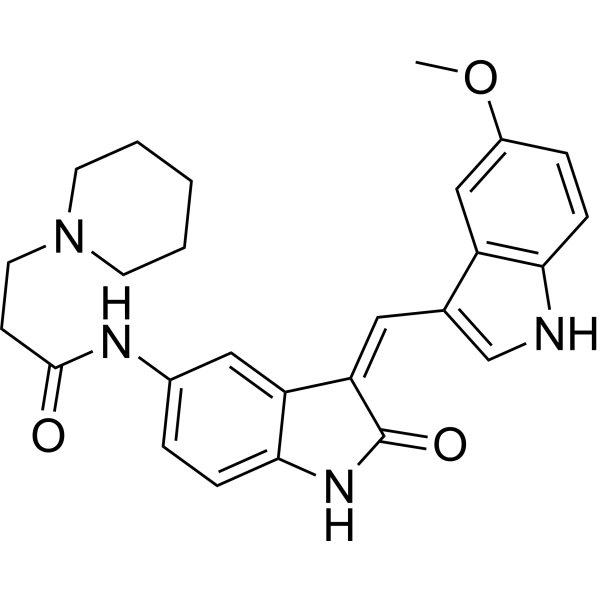
-
- HY-12972
-
|
PF-06747775
|
EGFR
|
Cancer
|
|
Mavelertinib is a selective, orally available and irreversible EGFR tyrosine kinase inhibitor (EGFR TKI), with IC50s of 5, 4, 12 and 3 nM for Del, L858R, and double mutants T790M/L858R and T790M/Del, respectively. Mavelertinib can be used for the research of non-small-cell lung cancer (NSCLC) .
|
-
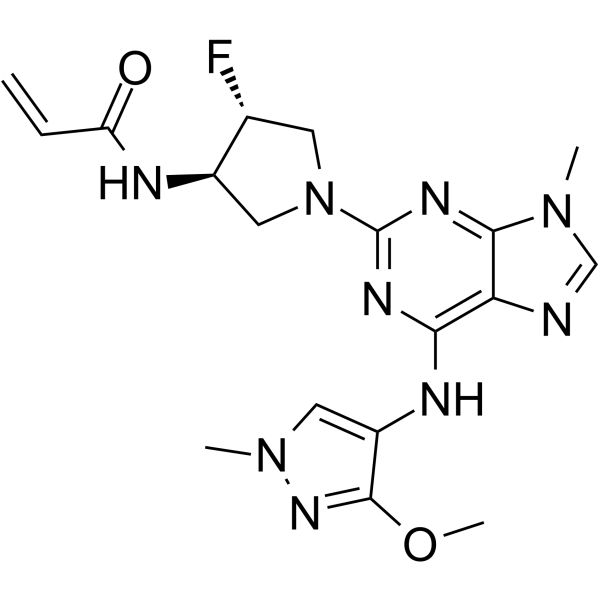
-
- HY-137191
-
|
|
EGFR
|
Cancer
|
|
CH7233163 is a noncovalent ATP-competitive inhibitor for EGFR-Del19/T790M/C797S. CH7233163 can overcome Osimertinib (HY-15772)-Resistant EGFR-Del19/T790M/C797S mutation. CH7233163 blocks the EGFR phosphorylation in the Del19/T790M/C797S_NIH3T3 cells. CH7233163 has antitumor activities .
|
-
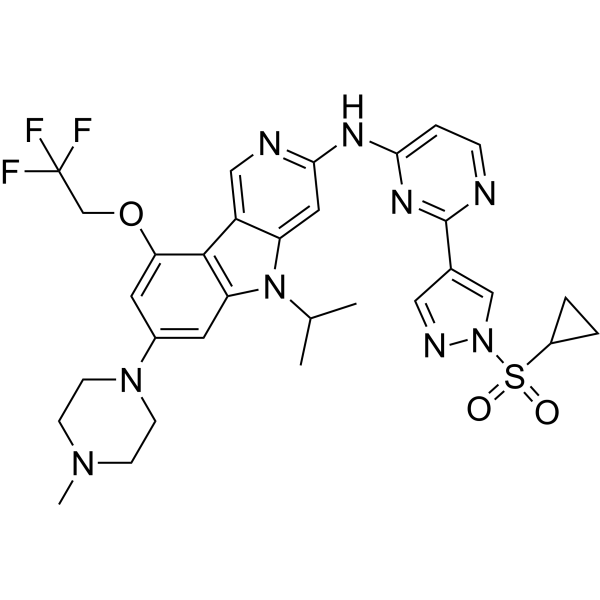
-
- HY-143445
-
|
|
EGFR
|
Cancer
|
|
EGFR-IN-48 is a potent and orally active EGFR inhibitor with IC50s of 0.193 nM, 0.251 nM, 10.4 nM for EGFR d19/TM/CS, EGFR LR/TM/CS, EGFR WT, respectively. EGFR-IN-48 inhibits the proliferation of BaF3 EGFR del19/T790M/C797S and PC-9 EGFR del19/T790M/C797S cells with IC50s of 1.526, 66.7 nM, respectively .
|
-
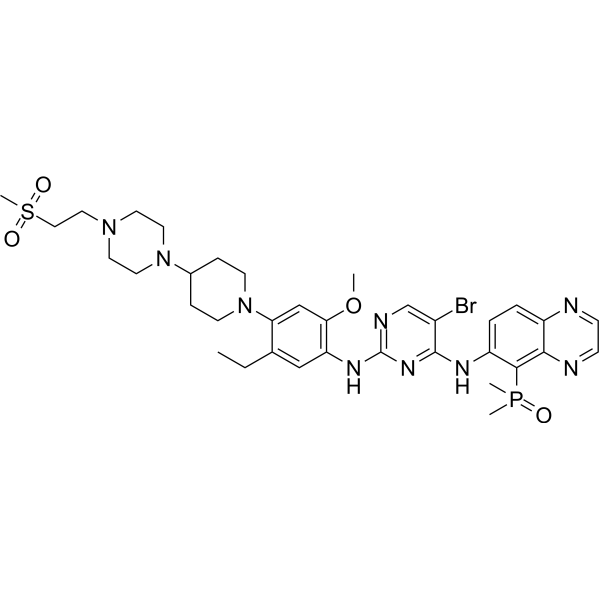
-
- HY-142517
-
|
|
EGFR
|
Cancer
|
|
EGFR-IN-25 is a potent EGFR inhibitor with IC50s of 9 nM and 60 nM for BaF3 cells (EGFR DEL19/T790M/C797S) and A431 cells (WT), respectively .
|
-
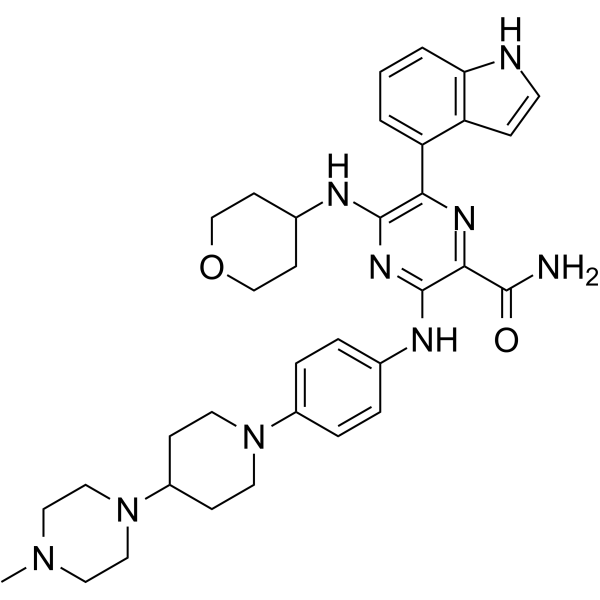
-
- HY-19970
-
KM11060
2 Publications Verification
|
CFTR
Autophagy
|
Endocrinology
|
|
KM11060 is a corrector of the F508 deletion (F508del)-cystic fibrosis transmembrane conductance regulator (CFTR) trafficking defect. KM11060 can be used for the research of F508del-CFTR processing defect and development of cystic fibrosis research .
|
-
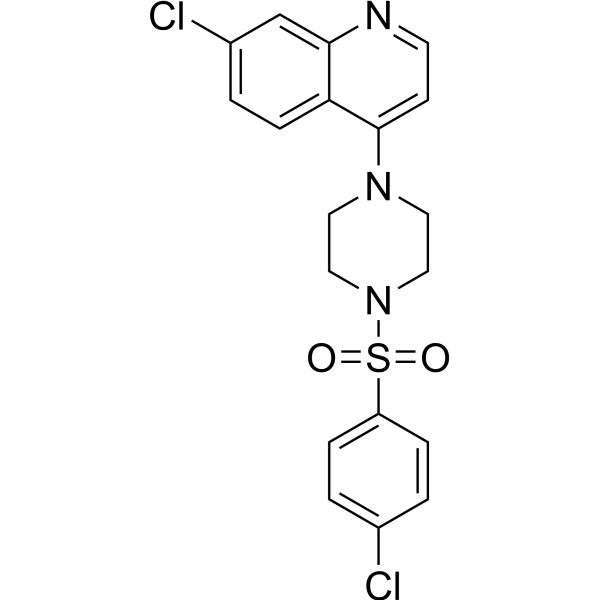
-
- HY-142519
-
|
|
EGFR
|
Cancer
|
|
EGFR-IN-27 is a potent EGFR inhibitor with IC50s of <50 nM for EGFR Del, L858R, Del/T790M, L858R/T790M, Del/T790M/C797S, and L858R/T790M/C797S, respectively (WO2021249324A1, compound 511) .
|
-
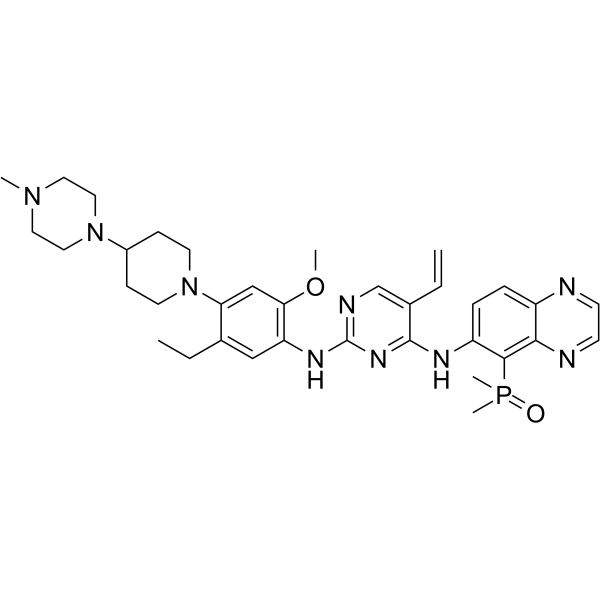
-
- HY-13017S
-
|
VX-770-d9
|
CFTR
|
Cancer
|
|
Ivacaftor-d9 is a potent CFTR modulator and exhibits an EC50 value of 255 nM for CFTR potentiation in G551D/F508del HBE Cells. Ivacaftor-D9 acts as an orally active and improved deuterated Ivacaftor analog for cystic fibrosis research[1].
|
-
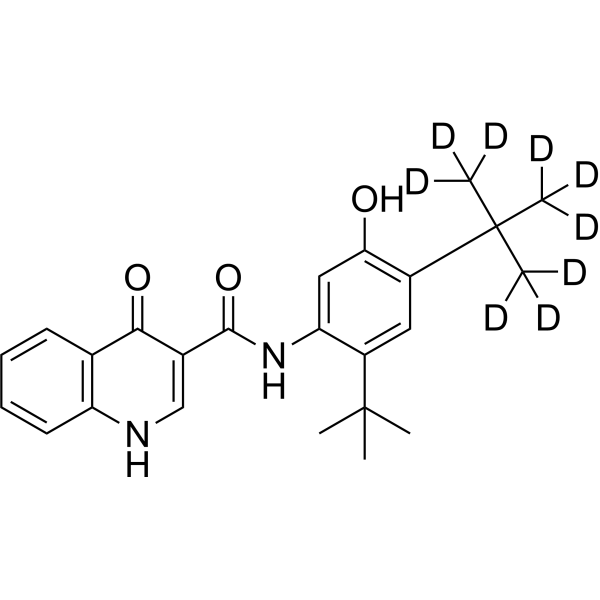
-
- HY-13017S1
-
|
VX-770-d19
|
CFTR
Autophagy
|
Endocrinology
|
|
Ivacaftor-d9 is a potent CFTR modulator and exhibits an EC50 value of 255 nM for CFTR potentiation in G551D/F508del HBE Cells. Ivacaftor-D9 acts as an orally active and improved deuterated Ivacaftor analog for cystic fibrosis research .
|
-
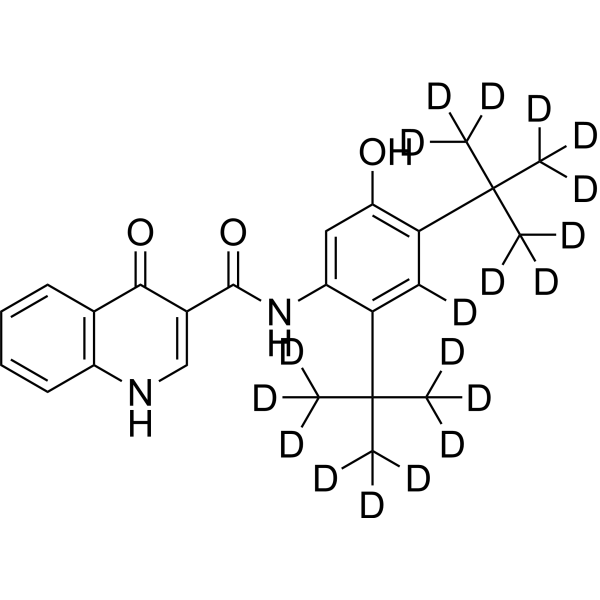
-
- HY-156284
-
|
|
EGFR
|
Cancer
|
|
EGFR-IN-89 (compound 13k) is a potent, fourth-generation EGFR mutation inhibitor with an IC50 of 10.1 nM against Del19/T790M/C797S mutations. EGFR-IN-89 shows higher selectivity over wild type .
|
-
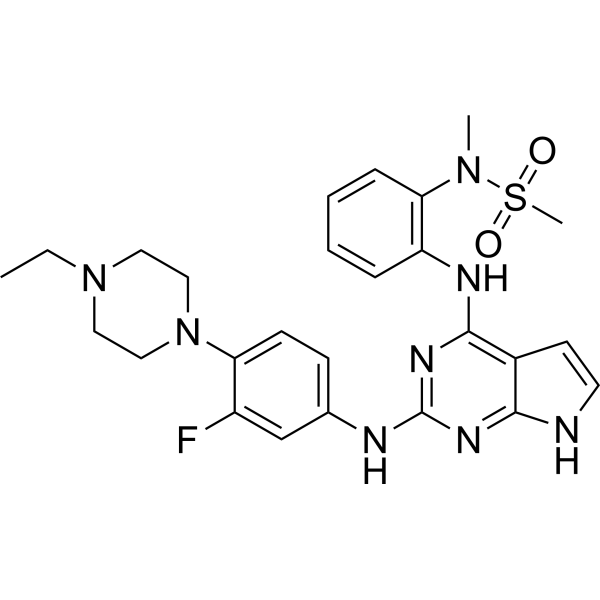
-
- HY-15448
-
Tezacaftor
Maximum Cited Publications
8 Publications Verification
VX-661
|
CFTR
|
Cancer
|
|
Tezacaftor (VX-661) is a F508del CFTR corrector. It helps CFTR protein reach the cell surface. However, Ivacaftor (VX-770, HY-13017), a CFTR potentiator, helps to prolong the opening time of cell surface CFTR protein channels. Tezacaftor combining with Ivacaftor, shows potent efficacy against cystic fibrosis and diseases with homozygous for the CFTR Phe508del mutation. Moreover, Elexacaftor (VX-445, HY-111772) is also a CFTR corrector. Elexacaftor-Tezacaftor-Ivacaftor aims at with cystic fibrosis (CF) with at least one Phe508del mutation, often avoids the indication for lung transplantation .
|
-
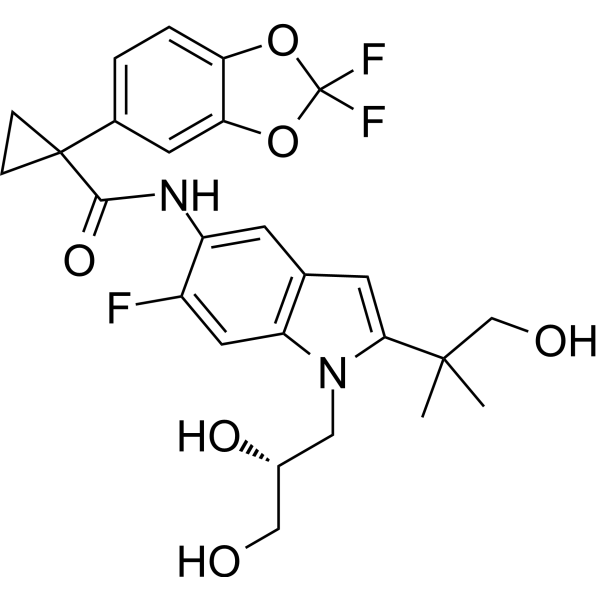
-
- HY-129550
-
|
|
EGFR
|
Cancer
|
|
BI-4020 is a fourth-generation, orally active, and non-covalent EGFR tyrosine kinase inhibitor. BI-4020 inhibits not only the triple mutant EGFR del19 T790M C797S variant (IC50=0.2 nM in BaF3 cell lines) but also the double mutant EGFR del19 T790M and primary mutant EGFR del19 (IC50=1 nM). BI-4020 also shows activity against EGFR wt (IC50=190 nM). BI-4020 shows high kinome selectivity and good DMPK properties .
|
-
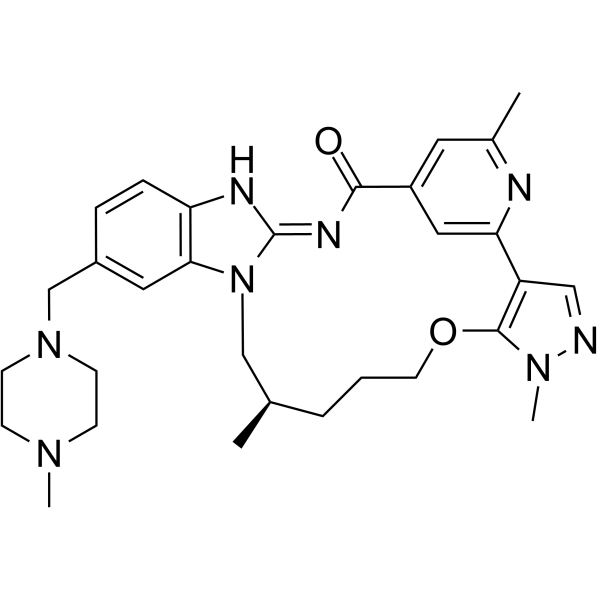
-
- HY-151882
-
|
|
EGFR
|
Cancer
|
|
EGFR-IN-73 (Compound 3f) is a potent inhibitor for the most common EGFR mutation EGFR Del19 with an IC50 of 119 nM .
|
-
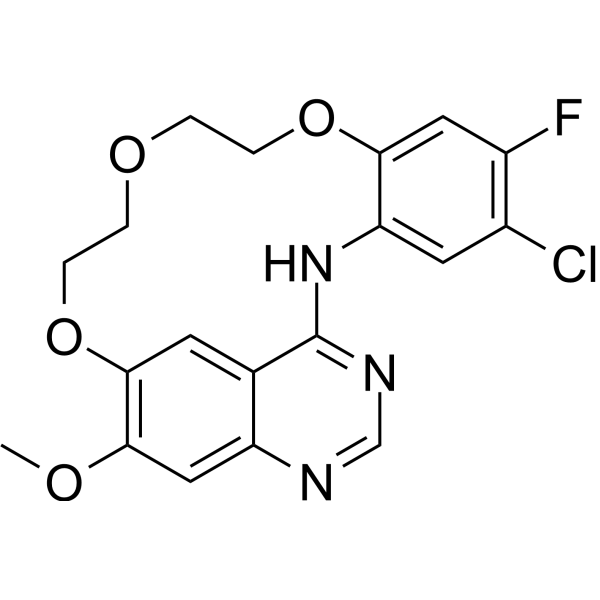
-
- HY-163094
-
|
|
EGFR
|
Cancer
|
|
EGFR-IN-95 (compound 5j) is an 2,4-diaminonicotinamide derivative. EGFR-IN-95 has potent inhibitory activity against EGFR del19/T790M/C797S and L858R/T790M/C797S .
|
-
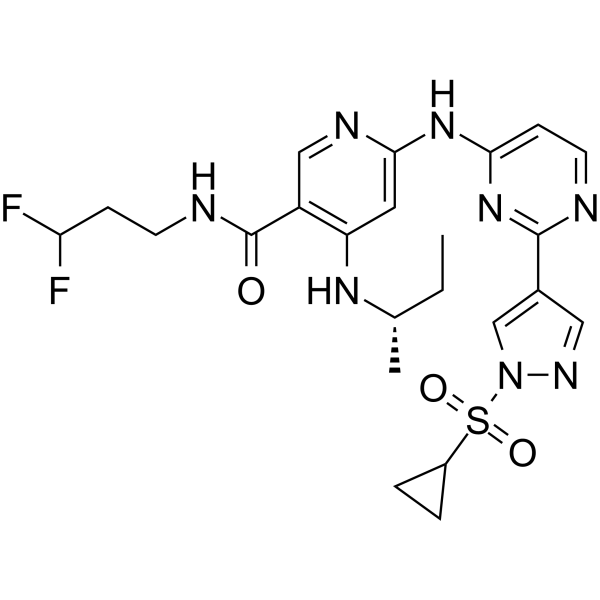
-
- HY-111099
-
|
ABBV-974
|
CFTR
Autophagy
|
Others
|
|
GLPG1837 is a potent and reversible CFTR potentiator, with EC50s of 3 nM and 339 nM for F508del and G551D CFTR, respectively.
|
-
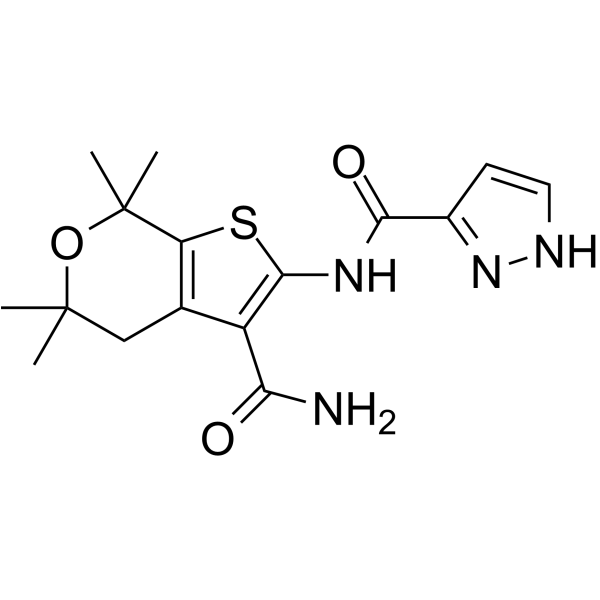
-
- HY-161126
-
|
|
EGFR
|
Cancer
|
|
EGFR-IN-98 (Compound 4c) is a EGFR inhibitor. The IC50 values of L858R/T790M/C797S and Del19/T790M/C797S are 0.277 μM and 0.089 μM, respectively. EGFR-IN 98 can be used in the study of tumors .
|
-
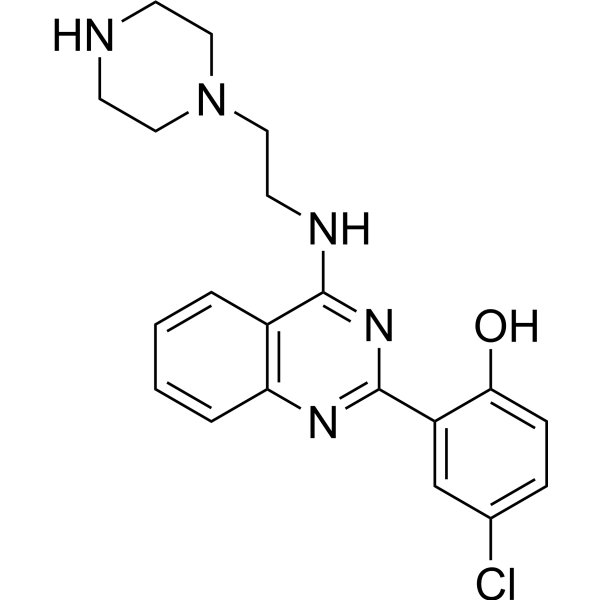
-
- HY-161319
-
|
|
EGFR
|
Cancer
|
|
EGFR-IN-104 (Compound A23) is an effective inhibitor of EGFR, with IC50 values of 0.33 μM and 0.133 μM against EGFR L858R/T790M and EGFR Del19/T790M/C797S, respectively. EGFR-IN-104 exhibits anticancer activity both in vitro and in vivo .
|
-
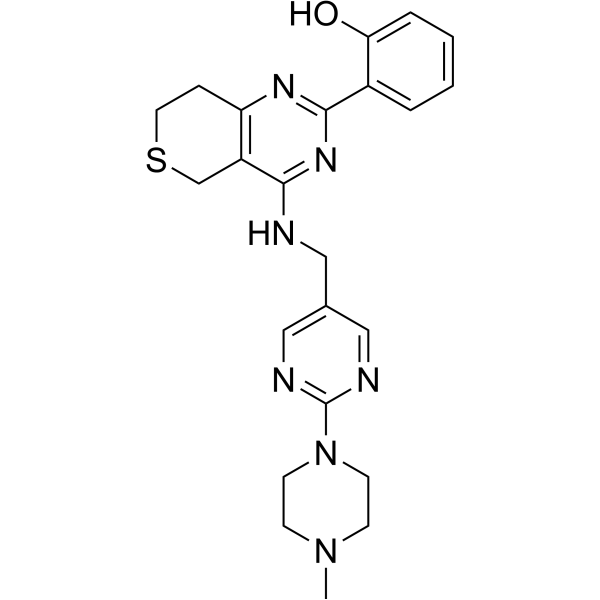
-
- HY-158002
-
-
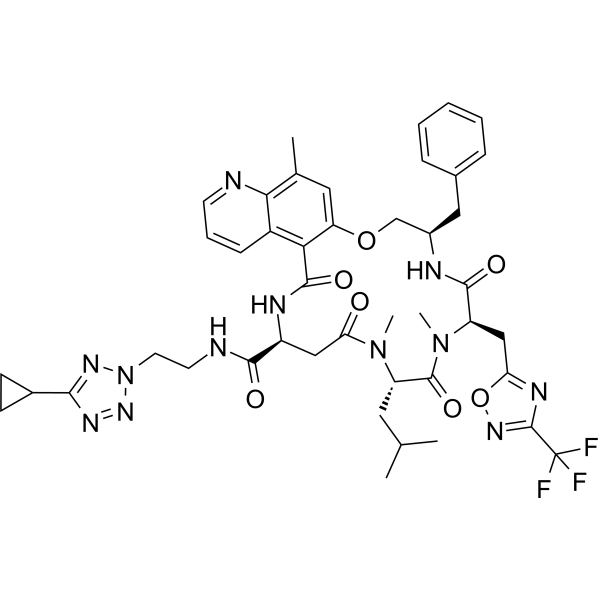
-
- HY-157526
-
|
|
EGFR
Apoptosis
|
Cancer
|
|
EGFR-TK-IN-1 (compound 7o) is a potent mutant EGFR inhibitor with IC50 of 8.5 nM an 9.3 nM against EGFR L858R/T790M and EGFR Del19.EGFR-TK-IN-1 showes strong antiproliferative effects against EGFR mutant-driven non-small cell lung cancer (NSCLC) cells and induces cell apoptosis .
|
-
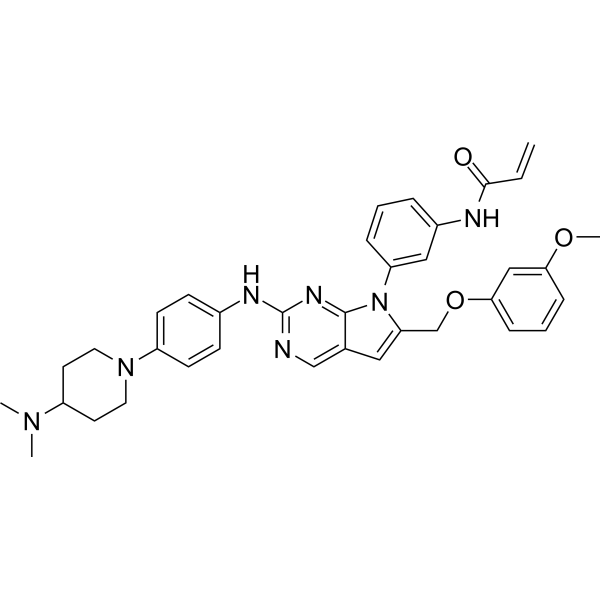
-
- HY-119936
-
|
|
CFTR
Autophagy
|
Inflammation/Immunology
|
|
GLPG2451 is a cystic fibrosis transmembrane conductance regulator (CFTR) potentiator, which effectively potentiates low temperature rescued F508del CFTR with an EC50 of 11.1 nM .
|
-
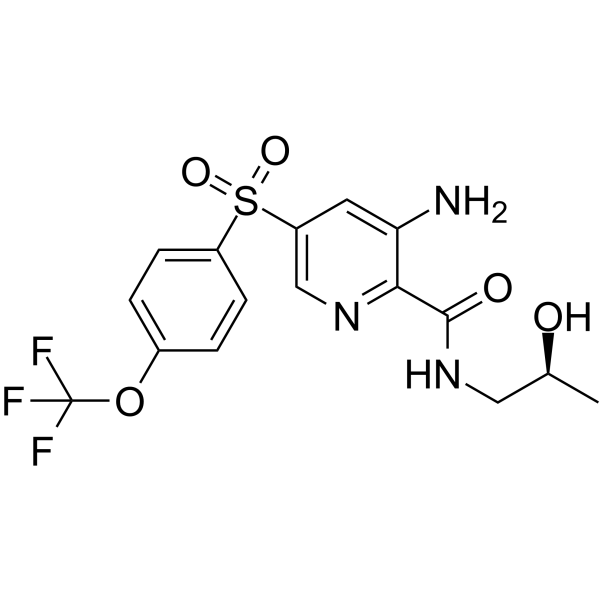
-
- HY-123967
-
|
|
E1/E2/E3 Enzyme
|
Inflammation/Immunology
|
|
RNF5 inhibitor inh-02 is a potent inhibitor of E3 ubiquitin ligase RNF5/RMA1. RNF5 inhibitor inh-02 leads to significant F508del-CFTR rescue (EC50=2.2 uM) in bronchial epithelial cells homozygous for the F508del mutation. RNF5 inhibitor inh-02 can be used for cystic fibrosis research .
|
-
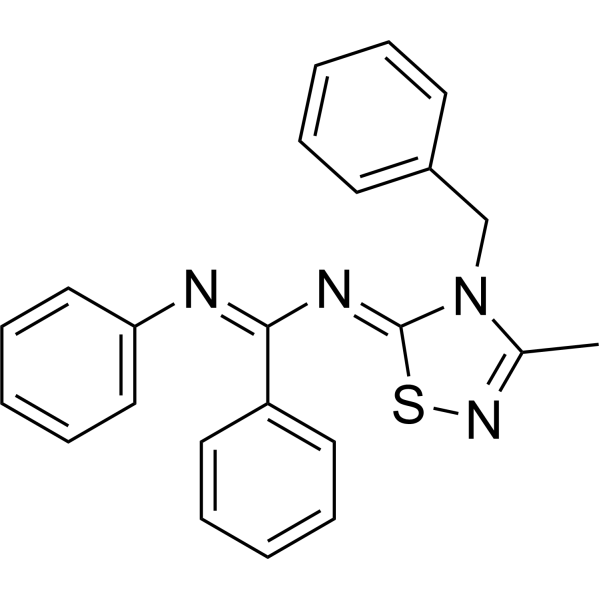
-
- HY-157166
-
|
|
EGFR
|
Cancer
|
|
EGFR kinase inhibitor 2 (compound A-7) is a potent EGFR inhibitor targeting EGFR L858R/T790M/C797S and EGFR Del19/T790M/C797S mutants. EGFR kinase inhibitor 2 has the potential to address acquired resistance in the treatment of non-small cell lung cancer .
|
-
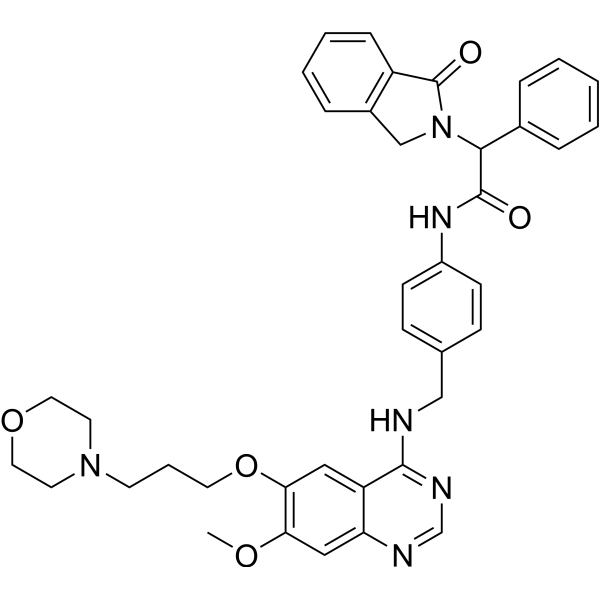
-
- HY-15448A
-
|
(Rac)-VX-661
|
CFTR
|
Inflammation/Immunology
|
|
(Rac)-Tezacaftor ((Rac)-VX-661) is a racemate of Tezacaftor (HY-15448). Tezacaftor is a F508del CFTR corrector. (Rac)-Tezacaftor can be used for the research of cystic fibrosis .
|
-
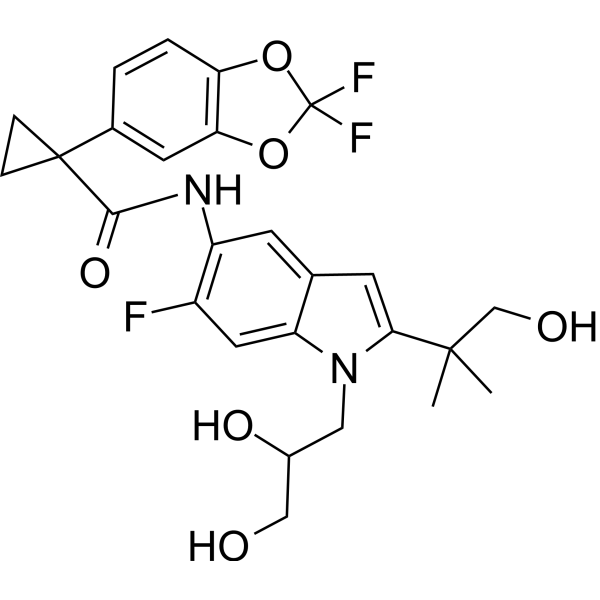
-
- HY-13017
-
|
VX-770
|
CFTR
Autophagy
|
Endocrinology
|
|
Ivacaftor (VX-770) is a potent and orally bioavailable CFTR potentiator, targeting G551D-CFTR and F508del-CFTR with EC50s of 100 nM and 25 nM, respectively.
|
-
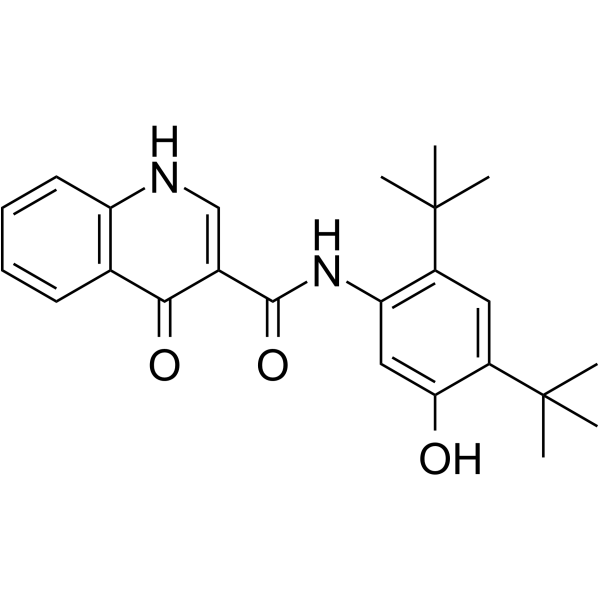
-
- HY-139611C
-
|
|
Histone Methyltransferase
|
Cancer
|
|
MRTX-1719 hydrochloride is a potent first-in-class selective inhibitor of the PRMT5/MTA complex, with an IC50 of less than 10 nM in PRMT5/MTA MTAP DEL SDMA cells .
|
-
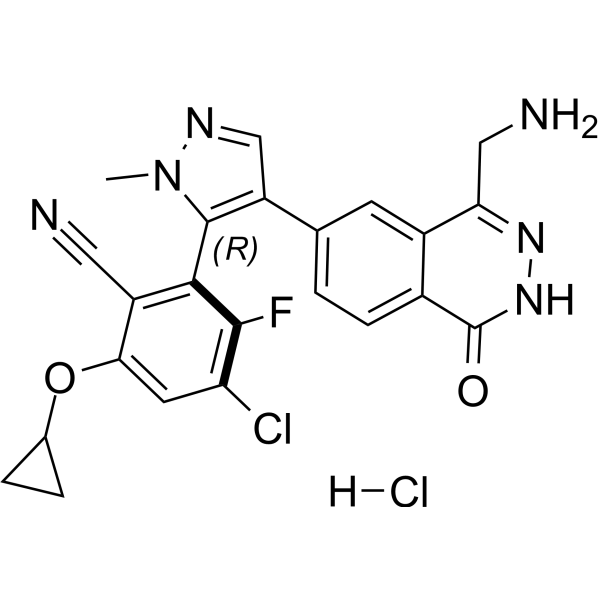
-
- HY-155005
-
|
|
EGFR
|
Cancer
|
|
EGFR mutant-IN-2 (Compound D51) is an EGFR mutant inhibitor. EGFR mutant-IN-2 inhibits the EGFR L858R/T790M/C797S mutant with an IC50 value of 14 nM. EGFR mutant-IN-2 inhibits the EGFR del19/T790M/C797S mutant with an IC50 value of 62 nM. EGFR mutant-IN-2 has favorable PK parameters, safety properties, in vivo stability, and antitumor activity .
|
-
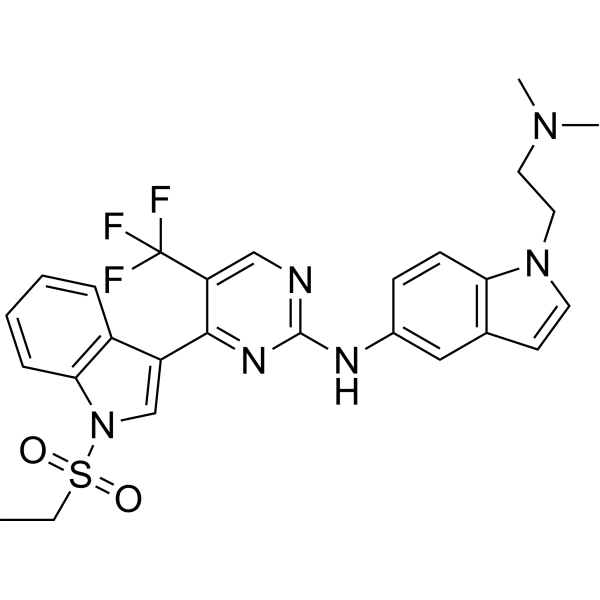
-
- HY-15448S
-
|
VX-661-d4
|
CFTR
Autophagy
|
Cancer
|
|
Tezacaftor-d4 (VX-661-d4) is the deuterium-labeled Tezacaftor (HY-15448), a F508del CFTR corrector. Tezacaftor helps CFTR protein reach the cell surface .
|
-
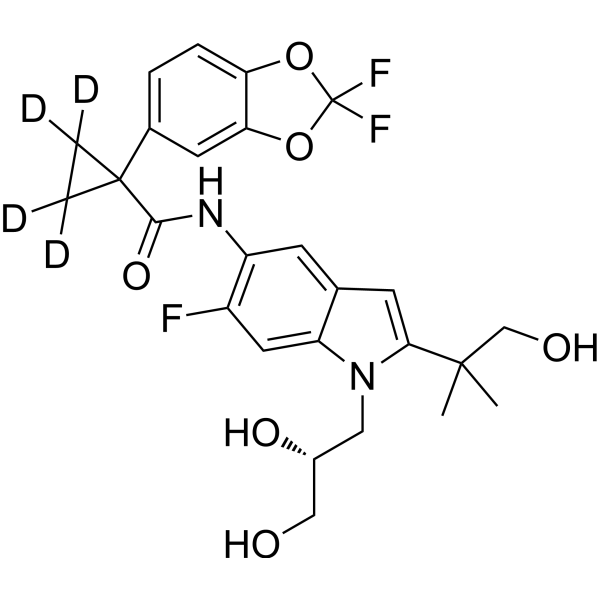
-
- HY-128860
-
|
|
EGFR
|
Cancer
|
|
Mutated EGFR-IN-2 (compound 91) is a mutant-selective EGFR inhibitor extracted from patent WO2017036263A1, which potently inhibits single-mutant EGFR (T790M) and double-mutant EGFR (including L858R/T790M (IC50=<1nM) and ex19del/T790M), and can suppress activity of single gain-of-function mutant EGFR (including L858R and ex19del) as well. Mutated EGFR-IN-2 shows anti-tumor antivity .
|
-
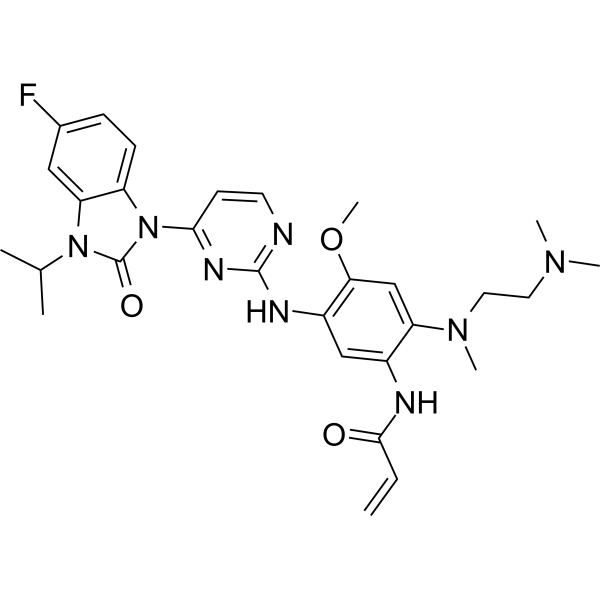
-
- HY-109177
-
|
QBW251
|
CFTR
|
Inflammation/Immunology
|
|
Icenticaftor (QBW251) is an orally active CFTR channel potentiator, with EC50s of 79 nM and 497 nM for F508del and G551D CFTR, respectively. Icenticaftor can be used for chronic obstructive pulmonary disease (COPD) and cystic fibrosis research .
|
-
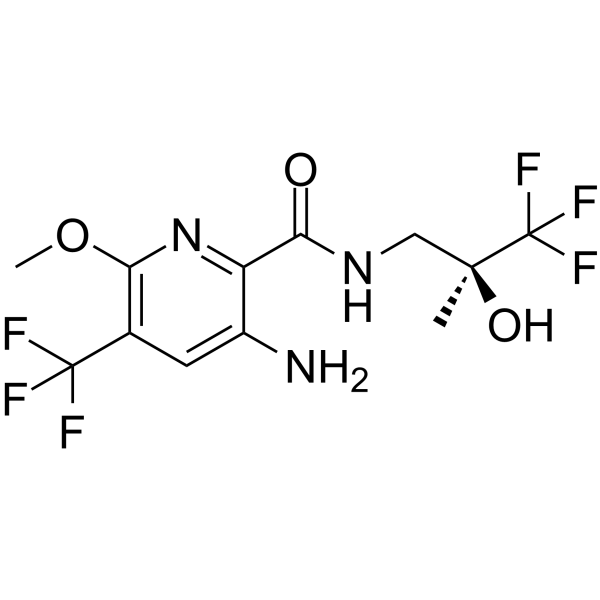
-
- HY-149401
-
|
|
EGFR
|
Cancer
|
|
EGFR-IN-82 (Cmpound 8a) is a potent and orally active EGFR inhibitor with IC50 values of 0.09 and 0.06 nM for EGFR L858R/T790M/C797S and EGFR Del19/T790M/C797S, respectively. EGFR-IN-82 has no significant effect on EGFR WT. EGFR-IN-82 has anti-proliferative activity and inhibits tumor formation in nude mice. EGFR-IN-82 can be used in non-small cell lung cancer research .
|
-
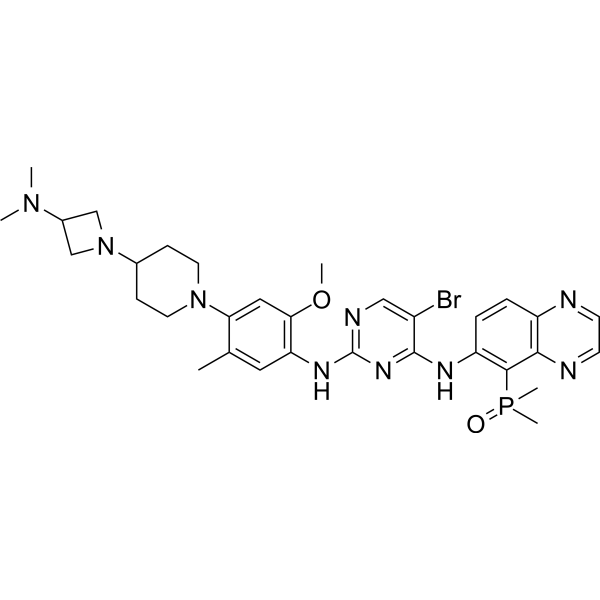
-
- HY-19815
-
|
|
EGFR
|
Cancer
|
|
Olafertinib is a third-generation EGFR TKI, with GI50 values of 5 nM (EGFR L858R/T790M), 10 nM (EGFR del19) and 689 nM (EGFR WT), respectively. Olafertinib has the potential for NSCLC research .
|
-
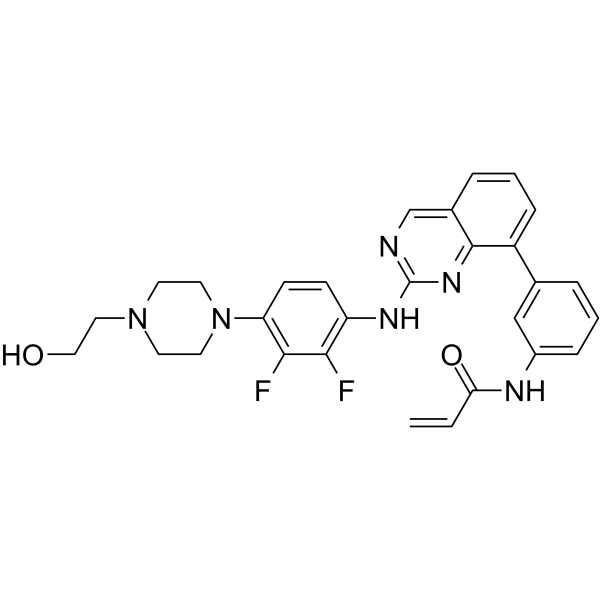
-
- HY-126394B
-
|
VX-659 potassium
|
CFTR
|
Endocrinology
|
|
Bamocaftor potassium is a cystic fibrosis transmembrane conductance regulator (CFTR) corrector designed to restore F508del-CFTR protein function. Bamocaftor potassium can be used combine with Tezacaftor (HY-15448) and Ivacaftor (HY-13017) in cystic fibrosis research .
|
-
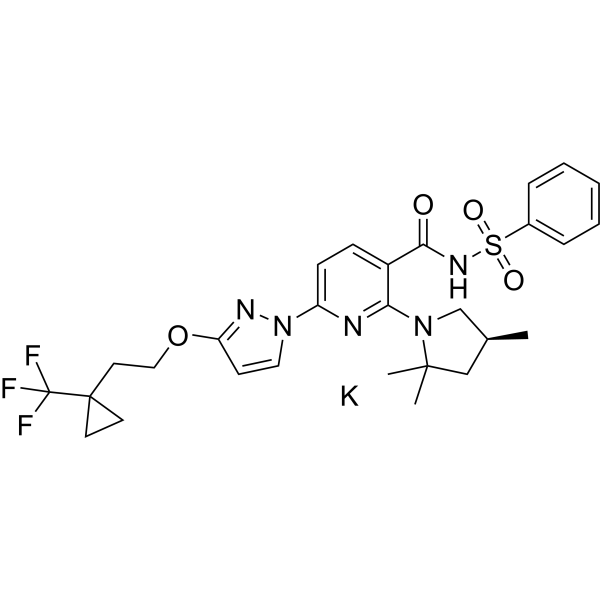
-
- HY-146423
-
|
|
PROTACs
EGFR
Apoptosis
|
Cancer
|
|
PROTAC EGFR degrader 6, a PROTAC EGFR degrader, potently degrades EGFR Del19 in HCC827 cells with the DC50 of 45.2 nM. PROTAC EGFR degrader 6 significantly induces the apoptosis of HCC827 cells and arrest the cells in G1 phase .
|
-
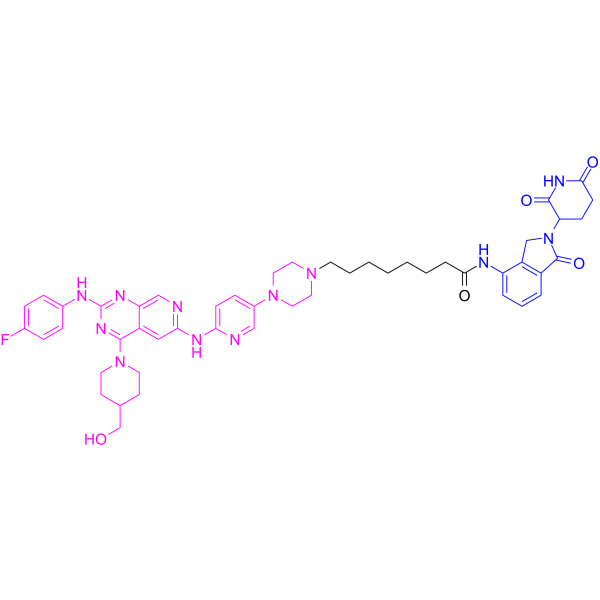
-
- HY-126394
-
|
VX-659
|
CFTR
|
Endocrinology
|
|
Bamocaftor (VX-659) is a cystic fibrosis transmembrane conductance regulator (CFTR) corrector designed to restore F508del-CFTR protein function. Bamocaftor can be used combine with Tezacaftor (HY-15448) and Ivacaftor (HY-13017) in cystic fibrosis research .
|
-
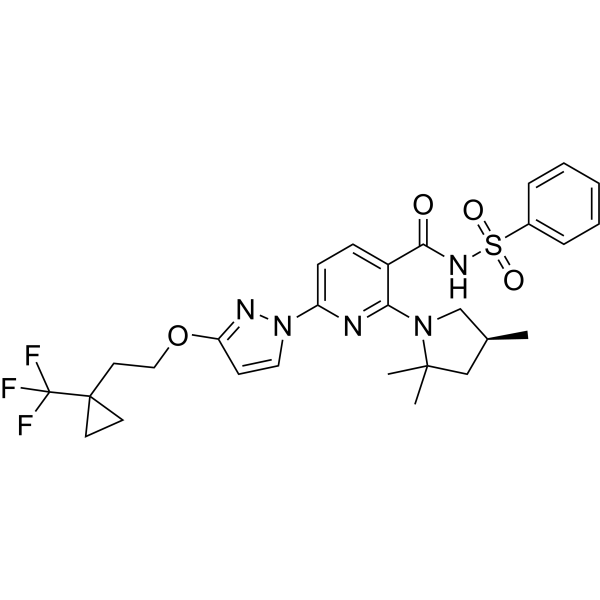
-
- HY-146422
-
|
|
PROTACs
EGFR
Apoptosis
|
Cancer
|
|
PROTAC EGFR degrader 5 (Compound 10), a PROTAC EGFR degrader, potently degrades EGFR Del19 in HCC827 cells with the DC50 of 34.8 nM. PROTAC EGFR degrader 5 significantly induces the apoptosis of HCC827 cells and arrest the cells in G1 phase .
|
-
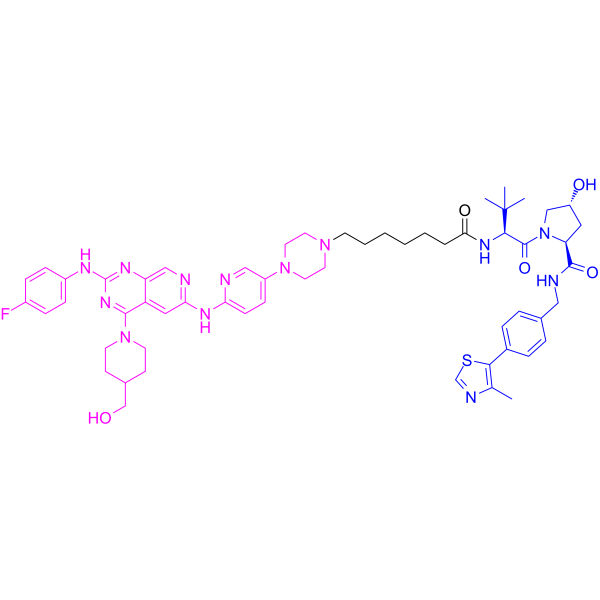
-
- HY-142680
-
|
|
EGFR
|
Cancer
|
|
EGFR-IN-23 is a potent EGFR TKI (tyrosine kinase inhibitor) with an IC50 of 8.05 nM for BaF3/EGFR-DEL19/T790M/C797S cell (WO2021244502A1, compound 8) .
|
-
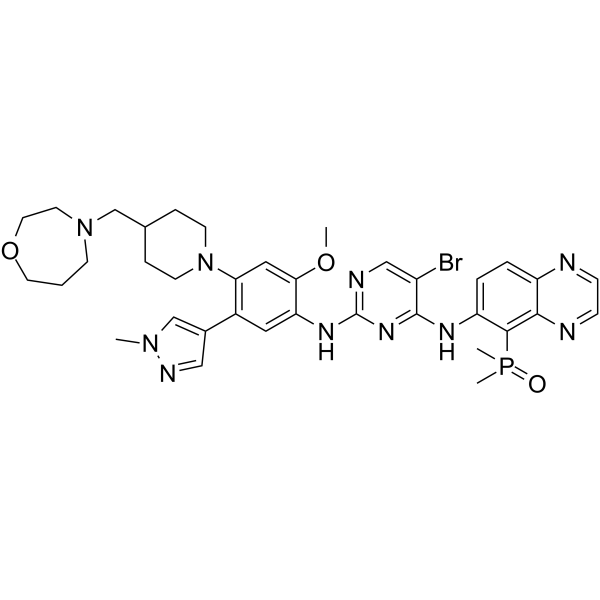
-
- HY-13017S2
-
|
VX-770-d18
|
Autophagy
CFTR
|
Endocrinology
|
|
Ivacaftor-d18 is the deuterium labeled Ivacaftor[1]. Ivacaftor (VX-770) is a potent and orally bioavailable CFTR potentiator, targeting G551D-CFTR and F508del-CFTR with EC50s of 100 nM and 25 nM, respectively[2].
|
-
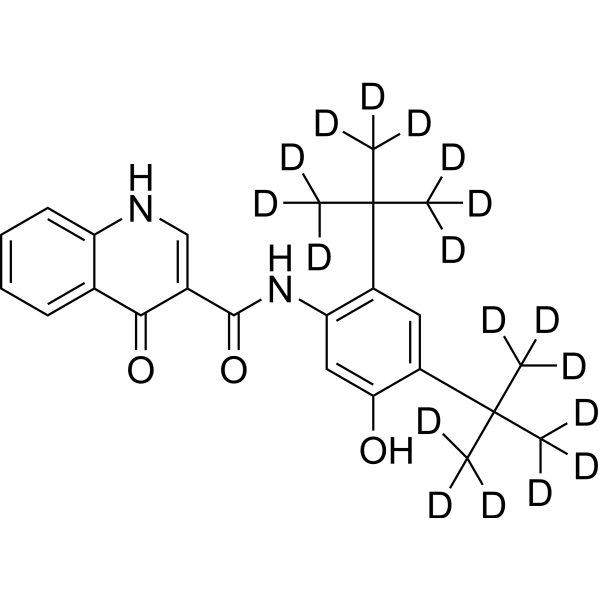
-
- HY-161275
-
|
|
EGFR
|
Cancer
|
|
BI-4732 a potent inhibitor EGFR-activating (E19del and L858R) and T790M mutations, with high blood-brian barrier penetration, targeting a broad range of EGFR mutations, including C797S. BI-4732 has anti-tumor activity .
|
-
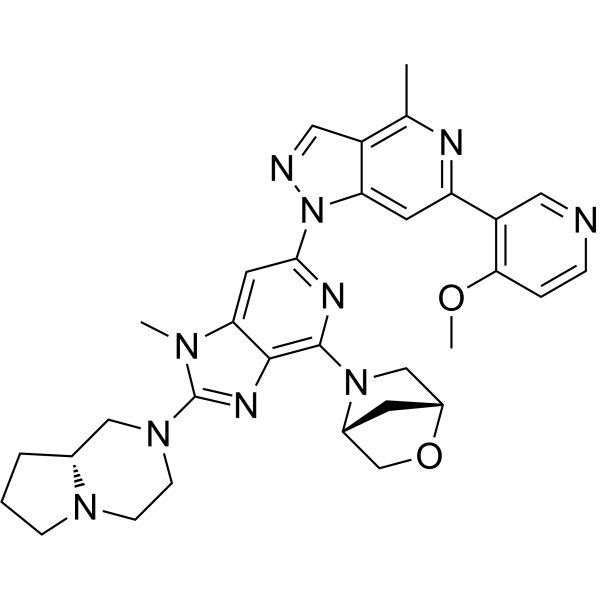
-
- HY-123921
-
|
|
PROTACs
EGFR
|
Cancer
|
|
Gefitinib-based PROTAC 3, conjugating an EGFR binding element to a von Hippel-Lindau ligand via a linker, induces EGFR degradation with DC50s of 11.7 nM and 22.3 nM in HCC827(exon 19 del) and H3255 (L858R mutantion) cells, respectively .
|
-
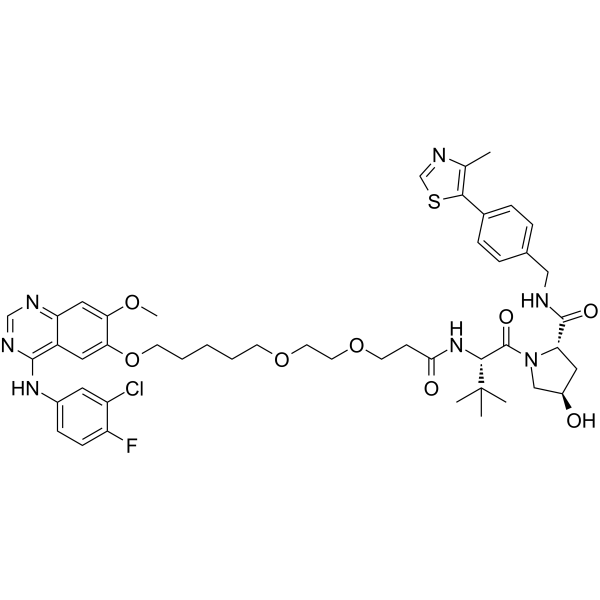
-
- HY-157432
-
|
|
EGFR
Apoptosis
|
Cancer
|
|
EGFR-IN-97 (compound 6q) is a EGFR inhibitor. EGFR-IN-97 shows inhibitory activity against Ba/F3-EGFR L858R/T790M/C797S and Ba/F3-EGFR Del19/T790M/C797S cells, with IC50 values of 0.42 μM and 0.41 μM, respectively. EGFR-IN-97 can promote apoptosis of NCI-H1975-EGFR L858R/T790M/C797S cells at the concentration of 0.8 μM .
|
-
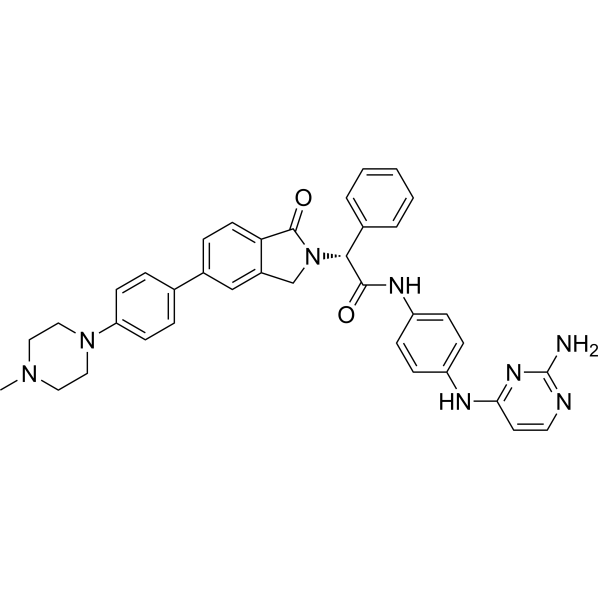
-
- HY-142512
-
|
|
EGFR
|
Cancer
|
|
EGFR-IN-24, a potent EGFR inhibitor, shows inhibition against EGFR(del19/T790M/C797S) and EGFR(L858R/T790M/C797S), respectively .
|
-
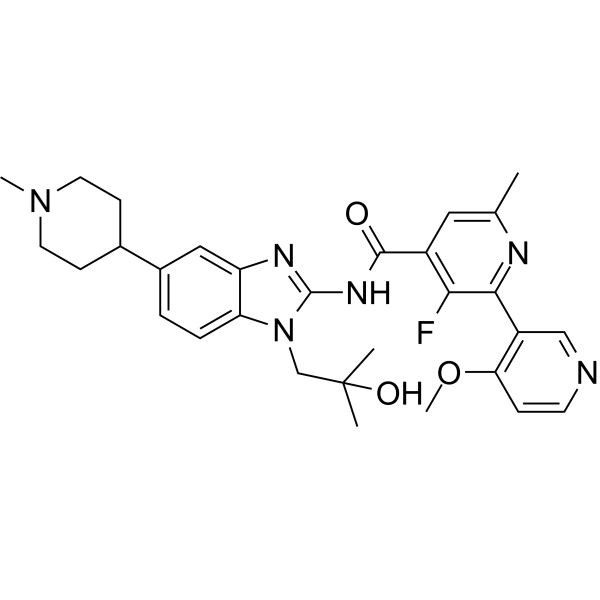
-
- HY-13017S3
-
|
VX-770-d4
|
CFTR
|
Endocrinology
|
|
Ivacaftor-d4 (VX-770-d4) is the deuterium labeled-Ivacaftor (HY-13017). Ivacaftor is a potent and orally active CFTR potentiator, targeting G551D-CFTR and F508del-CFTR with EC50s of 100 nM and 25 nM, respectively .
|
-
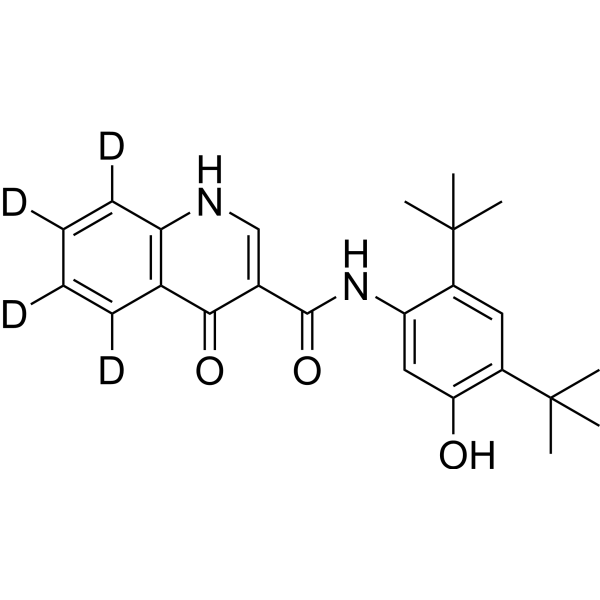
-
- HY-15801
-
|
|
Anaplastic lymphoma kinase (ALK)
EGFR
|
Cancer
|
|
HG-14-10-04 is a potent ALK and mutant EGFR inhibitor with IC50s of 20 nM, 15.6 nM, 22.6 nM and 124.5 nM for ALK, EGFR LR/TM, EGFR 19del/TM/CS and EGFR LR/TM/CS, respectively. HG-14-10-04 can be used to research anticancer .
|
-
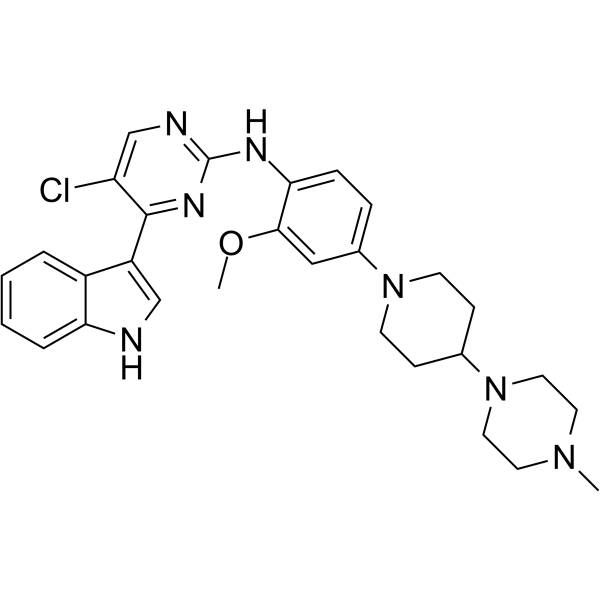
-
- HY-18750A
-
|
AZD3759 hydrochloride
|
EGFR
Apoptosis
|
Cancer
|
|
Zorifertinib (AZD3759) hydrochloride is a potent, orally active, central nervous system-penetrant, EGFR inhibitor (IC50s: 0.3, 0.2, and 0.2 nM for EGFR wt, EGFR L858R, and EGFR exon 19Del, respectively). Zorifertinib hydrochloride induces cancer cell apoptosis. Zorifertinib hydrochloride has antitumor activity, and can be used for NSCLC, HCC etc. research .
|
-
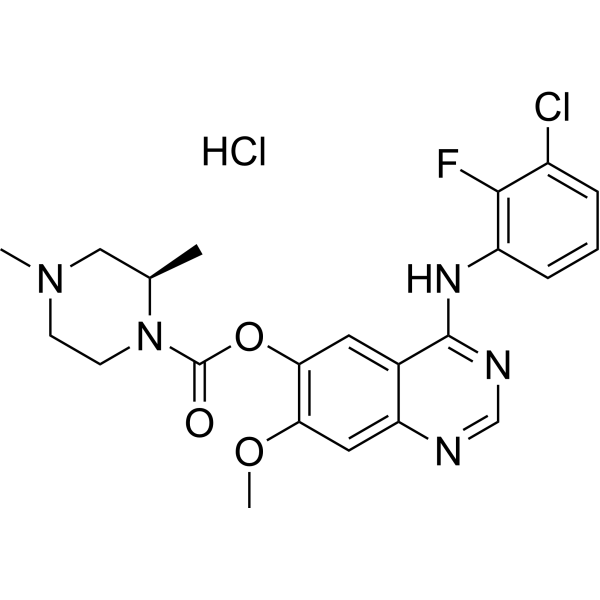
-
- HY-18750
-
|
AZD3759
|
EGFR
Apoptosis
|
Cancer
|
|
Zorifertinib (AZD3759) is a potent, orally active, central nervous system-penetrant, EGFR inhibitor. At Km ATP concentrations, the IC50s are 0.3, 0.2, and 0.2 nM for EGFR wt, EGFR L858R, and EGFR exon 19Del, respectively. Zorifertinib induces cancer cell apoptosis. Zorifertinib has antitumor activity, and can be used for NSCLC, HCC etc. research .
|
-
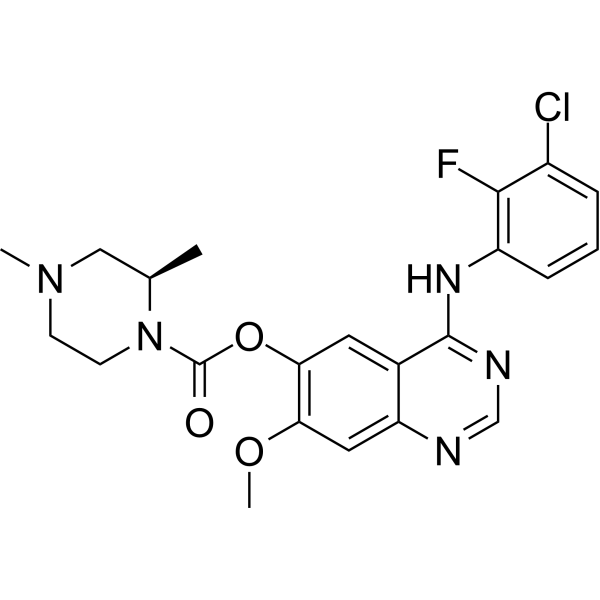
-
- HY-138072
-
|
|
EGFR
|
Cancer
|
|
EMI1 is an EGFR ex19del/T790M/C797S and EGFR L858R/T790M/C797S inhibitor. EMI1 can be used for the research of mutant EGFR-associated, drug-resistant non-small-cell lung cancer (NSCLC) .
|
-
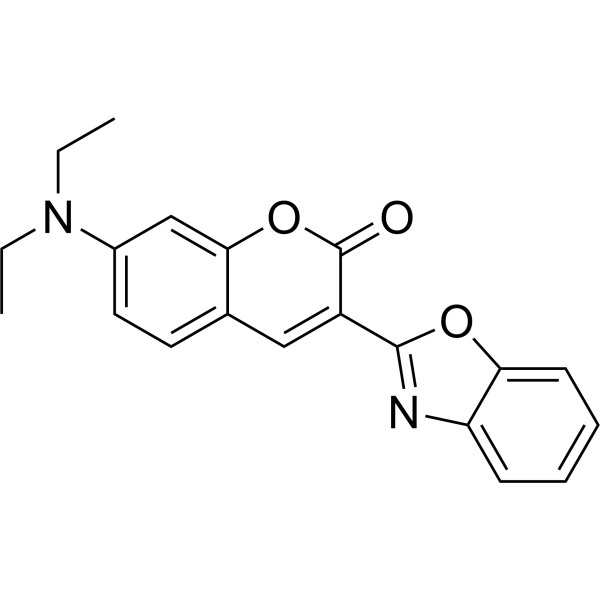
-
- HY-152098
-
|
|
EGFR
|
Cancer
|
|
HX103 is an epidermal growth factor receptor (EGFR)-tyrosine kinase inhibitor (TKI)-based fluorogenic probe. HX103 inhibits EGFR 19 del, EGFR L858R, EGFR wild type and EGFR T790M with IC50s of 1.3, 1.5, 4.0 and 977 nM, respectively. HX103 can be used for quantifying active-EGFR to predict agent sensitivity in NSCLC patients with EGFR-activating mutations .
|
-
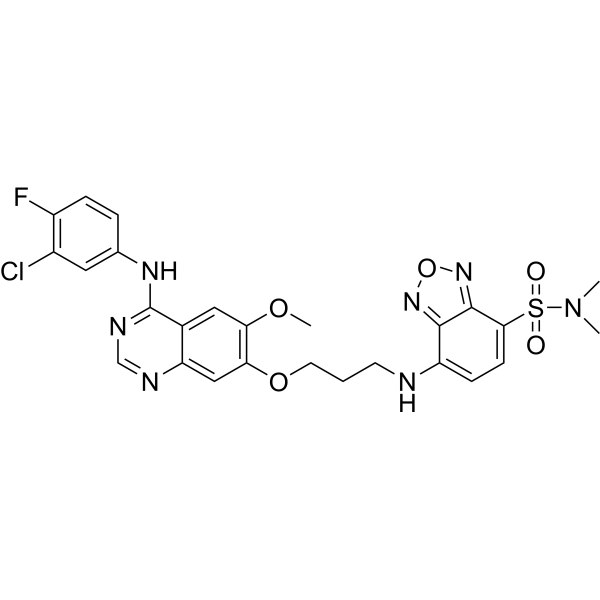
-
- HY-146349
-
|
|
PROTACs
EGFR
Autophagy
|
Cancer
|
|
PROTAC EGFR degrader 4 is a potent PROTAC targeting mutant EGFR.PROTAC EGFR degrader 4 induces EGFR del19 and EGFR L858R/T790M degradation with DC50s of 0.51 and 126 nM, respectively. PROTAC EGFR degrader 4 significantly inhibits growth of HCC827 and H1975 cell lines with IC50s of 0.83 and 203.1 nM, respectively. Induced EGFR degradation is related to autophagy .
|
-
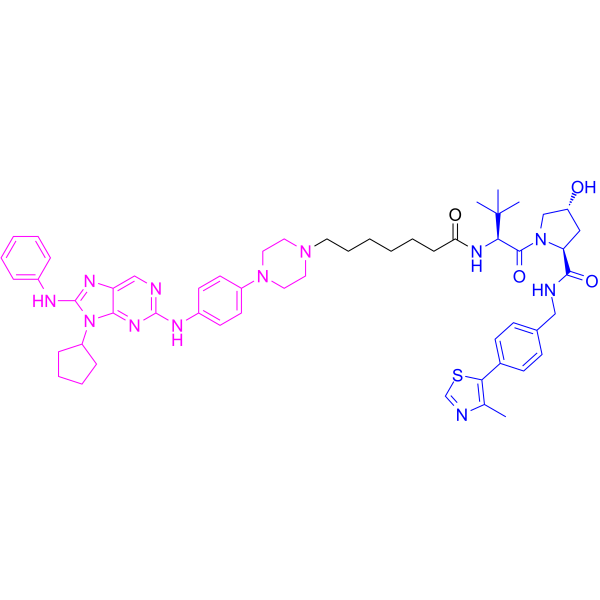
-
- HY-149695
-
|
|
EGFR
|
Cancer
|
|
EGFR-IN-91 (compound 9) is an orally available EGFR inhibitor with blood-brain barrier penetrability. EGFR-IN-91 inhibits EGFR L858R/C797S and EGFR exon 19del/C797S, inducing tumor regression in xenograft (PDX) mouse models. EGFR-IN-91 has the potential to inhibit localized and metastatic non-small cell lung cancer (NSCLC) driven by EGFR mutants .
|
-
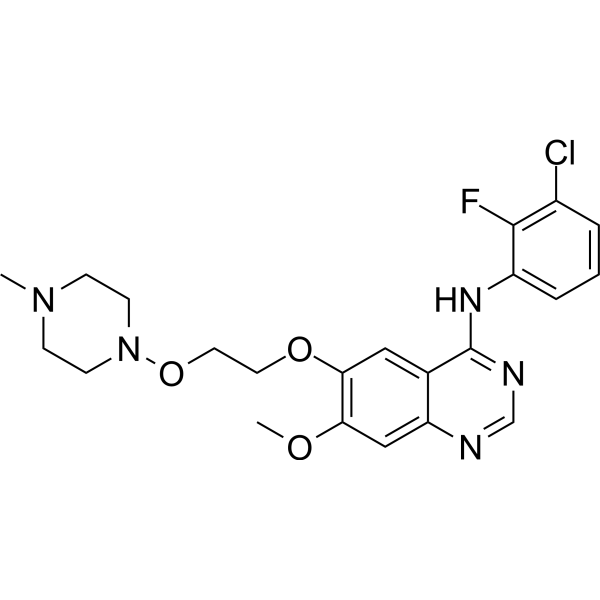
-
- HY-112823B
-
|
HS-10296 hydrochloride
|
EGFR
|
Cancer
|
|
Almonertinib (HS-10296) hydrochloride is an orally available, irreversible, third-generation EGFR tyrosine kinase inhibitor with high selectivity for EGFR-sensitizing and T790M resistance mutations. Almonertinib hydrochloride shows great inhibitory activity against T790M, T790M/L858R and T790M/Del19 (IC50: 0.37, 0.29 and 0.21 nM, respectively), and is less effective against wild type (3.39 nM). Almonertinib hydrochloride is used for the research of the non-small cell lung cancer .
|
-
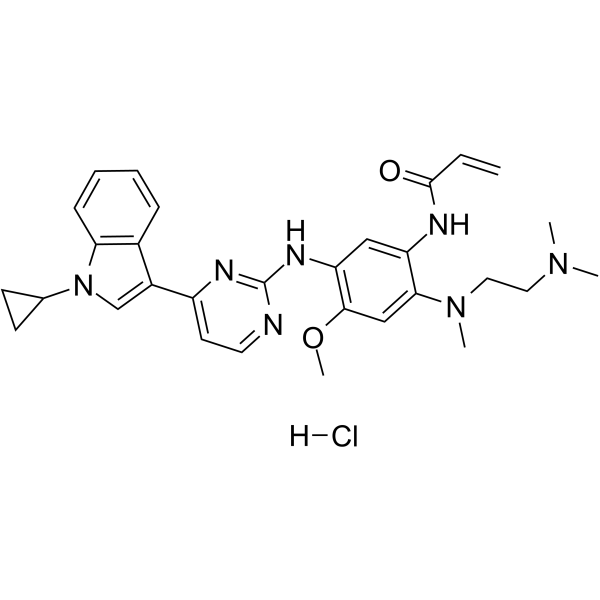
- HY-112823
-
|
HS-10296
|
EGFR
|
Cancer
|
|
Almonertinib (HS-10296) is an orally available, irreversible, third-generation EGFR tyrosine kinase inhibitor with high selectivity for EGFR-sensitizing and T790M resistance mutations. Almonertinib shows great inhibitory activity against T790M, T790M/L858R and T790M/Del19 (IC50: 0.37, 0.29 and 0.21 nM, respectively), and is less effective against wild type (3.39 nM). Almonertinib is used for the research of the non-small cell lung cancer .
|
-
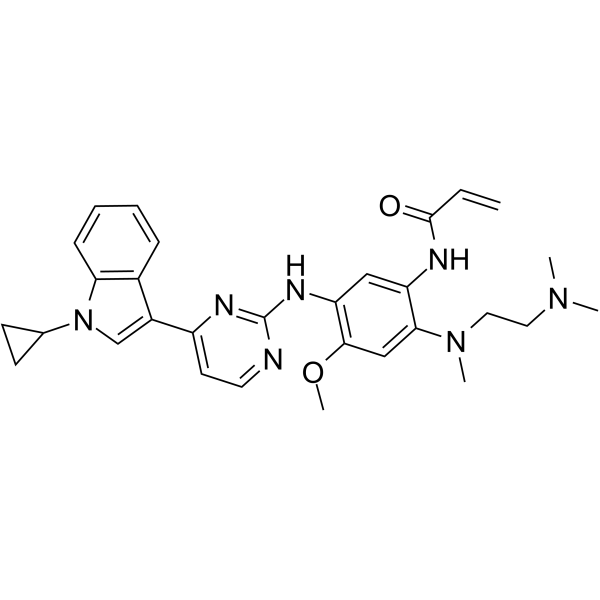
- HY-112823A
-
|
HS-10296 mesylate
|
EGFR
|
Cancer
|
|
Almonertinib (HS-10296) mesylate is an orally available, irreversible, third-generation EGFR tyrosine kinase inhibitor with high selectivity for EGFR-sensitizing and T790M resistance mutations. Almonertinib mesylate shows great inhibitory activity against T790M, T790M/L858R and T790M/Del19 (IC50: 0.37, 0.29 and 0.21 nM, respectively), and is less effective against wild type (3.39 nM). Almonertinib mesylate is used for the research of the non-small cell lung cancer .
|
-
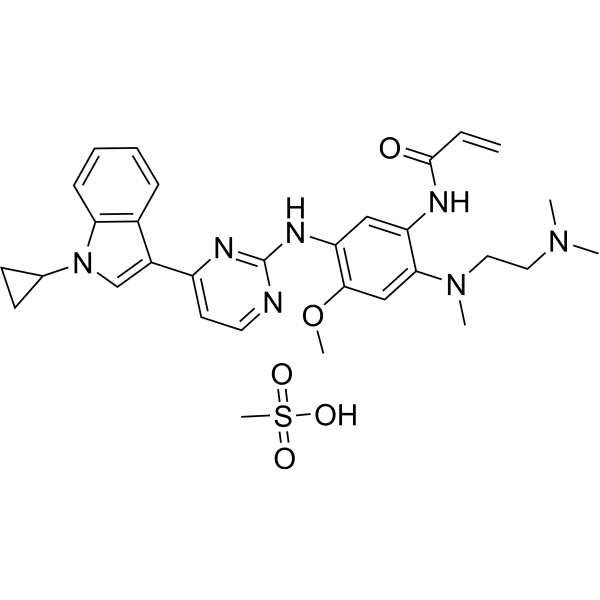
- HY-150610
-
|
|
EGFR
|
Cancer
|
|
EGFR-IN-69 (compound 17g) is a potent EGFR inhibitor, with IC50 values of 4.3, 6.6 and 25.6 nM against EGFR L858R/T790M/C797S, EGFR L858R/T790M, and EGFR 19del/T790M/C797S, respectively. EGFR-IN-69 can be used for non-small-cell-lung-cancer (NSCLC) research .
|
-
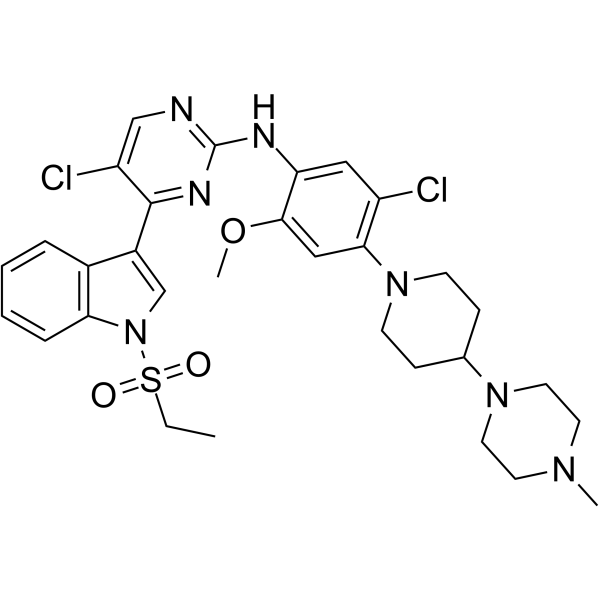
| Cat. No. |
Product Name |
Chemical Structure |
-
- HY-13017S
-
|
|
|
Ivacaftor-d9 is a potent CFTR modulator and exhibits an EC50 value of 255 nM for CFTR potentiation in G551D/F508del HBE Cells. Ivacaftor-D9 acts as an orally active and improved deuterated Ivacaftor analog for cystic fibrosis research[1].
|
-

-
- HY-15448S
-
|
|
|
Tezacaftor-d4 (VX-661-d4) is the deuterium-labeled Tezacaftor (HY-15448), a F508del CFTR corrector. Tezacaftor helps CFTR protein reach the cell surface .
|
-

-
- HY-13017S3
-
|
|
|
Ivacaftor-d4 (VX-770-d4) is the deuterium labeled-Ivacaftor (HY-13017). Ivacaftor is a potent and orally active CFTR potentiator, targeting G551D-CFTR and F508del-CFTR with EC50s of 100 nM and 25 nM, respectively .
|
-

-
- HY-13017S1
-
|
|
|
Ivacaftor-d9 is a potent CFTR modulator and exhibits an EC50 value of 255 nM for CFTR potentiation in G551D/F508del HBE Cells. Ivacaftor-D9 acts as an orally active and improved deuterated Ivacaftor analog for cystic fibrosis research .
|
-

-
- HY-13017S2
-
|
|
|
Ivacaftor-d18 is the deuterium labeled Ivacaftor[1]. Ivacaftor (VX-770) is a potent and orally bioavailable CFTR potentiator, targeting G551D-CFTR and F508del-CFTR with EC50s of 100 nM and 25 nM, respectively[2].
|
-

Your information is safe with us. * Required Fields.
Inquiry Information
- Product Name:
- Cat. No.:
- Quantity:
- MCE Japan Authorized Agent:





























































